Organic Chemistry for Absolute Chemistry Beginners
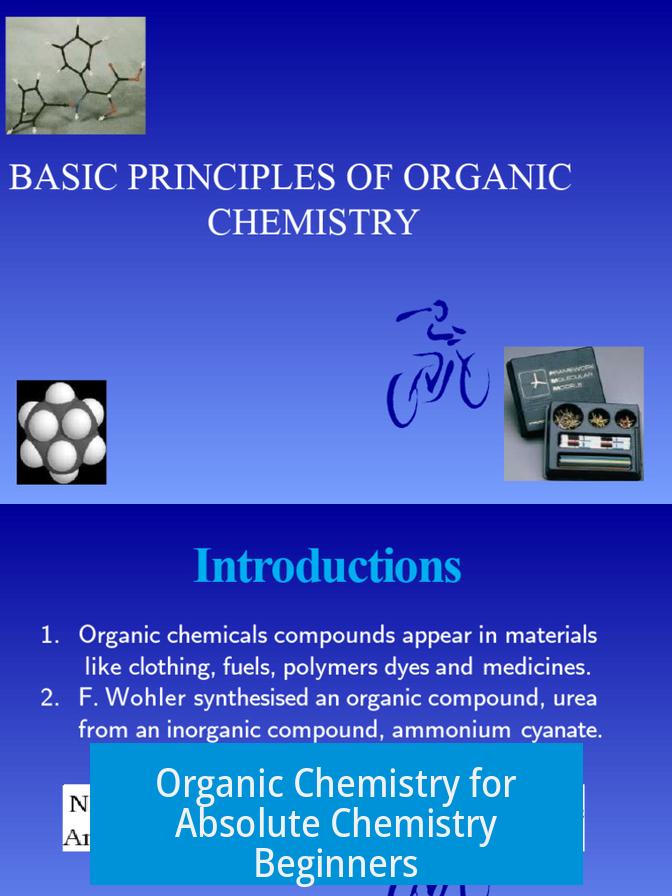
Organic chemistry for absolute beginners is an introductory guide that explains foundational concepts of organic chemistry clearly and simply. It covers essential principles, major compound classes, and problem-solving techniques that new learners find challenging. This article breaks down how beginners can approach organic chemistry and points out helpful resources to ease their learning journey.
Importance of Prior Basic Chemistry Knowledge
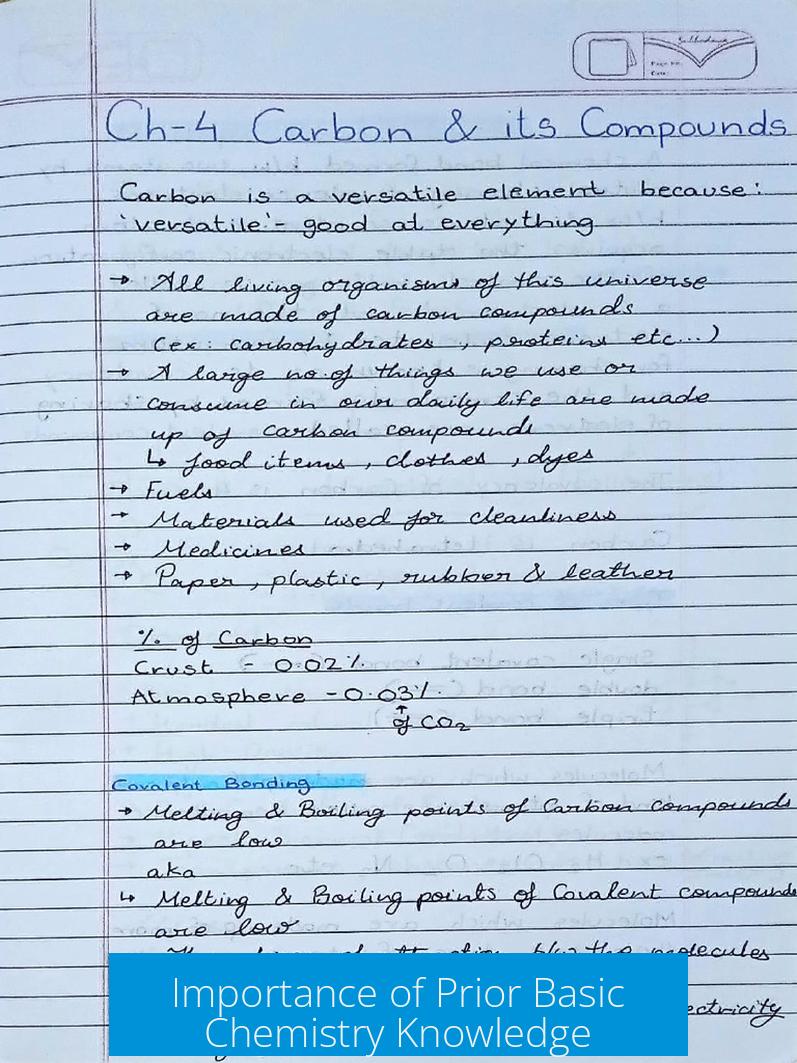
Before starting organic chemistry, acquiring a solid grasp of general chemistry basics is crucial. Concepts such as chemical bonding, acids and bases, chemical equilibrium, pH, and pKa provide the backbone for understanding organic reactions and mechanisms.
- Many educators recommend completing introductory inorganic or general chemistry courses first.
- General chemistry teaches fundamental ideas used in organic chemistry, including electron distribution and molecular structure.
- Colleges commonly require students to finish General Chemistry 1 and 2 before enrolling in organic chemistry.
- Without this foundation, learning organic chemistry concepts becomes more difficult and less intuitive.
Starting with basic chemistry prepares students to handle the challenges and abstract thinking organic chemistry demands. It anchors unfamiliar organic topics in prior knowledge.
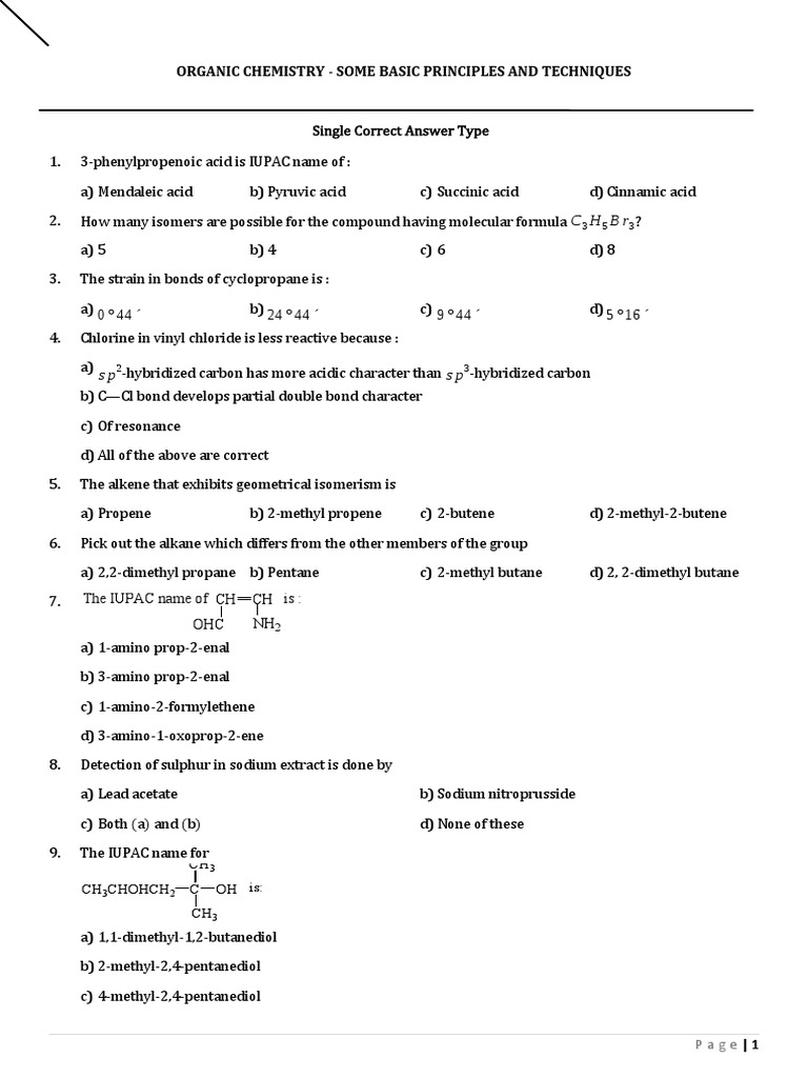
Basic Principles and Language of Organic Chemistry
Organic chemistry involves studying carbon-based molecules and their interactions. Beginners face a specialized language with unique terminology and concepts.
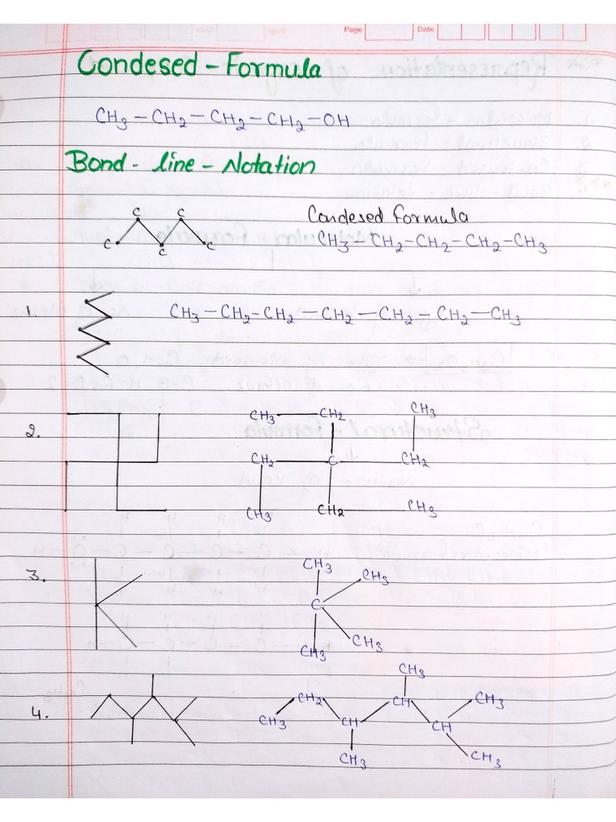
- Structure and bonding: Understanding covalent bonds, resonance, hybridization, and molecular geometry is fundamental.
- Functional groups: These are specific atom groups within molecules that determine chemical behavior.
- Reactivity and mechanisms: Organic reactions involve electron movement, described by arrow-pushing to track changes.
- Nomenclature: Systematic naming rules help identify compounds unambiguously.
Mastering this language helps interpret reactions, predict products, and solve problems effectively. Organic chemistry texts often begin with these basics.
Major Classes of Organic Compounds
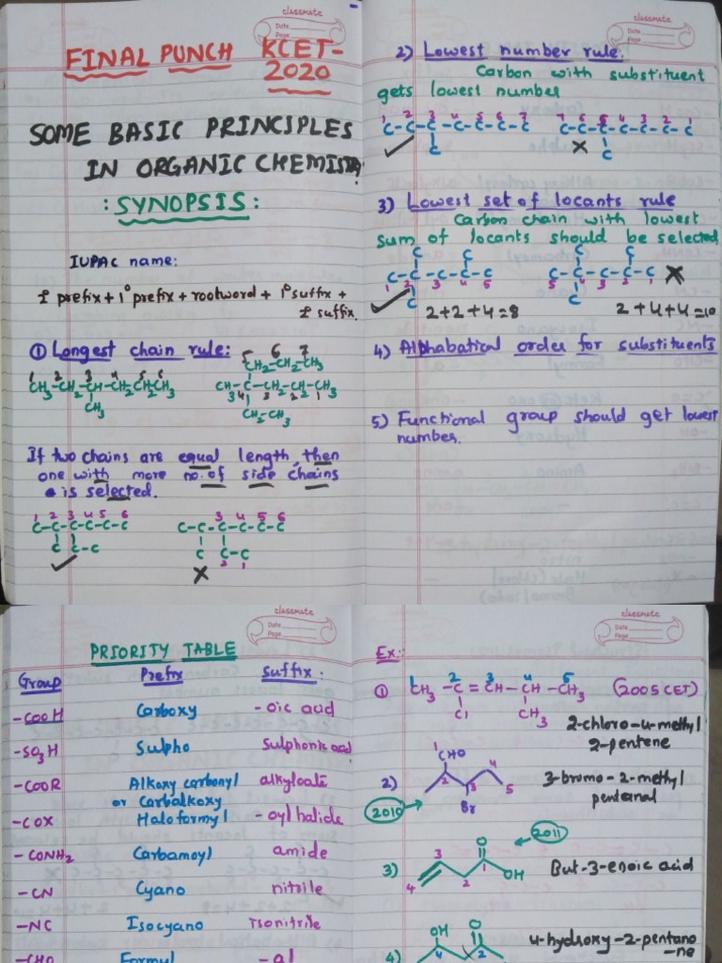
Learning about principal compound classes aids in organizing knowledge and anticipating reactivity patterns. Some major classes include:
| Class | Description | Examples |
|---|---|---|
| Alkanes | Saturated hydrocarbons with only single bonds | Methane, Ethane, Propane |
| Alkenes | Unsaturated hydrocarbons with one or more double bonds | Ethene, Propene |
| Alkynes | Unsaturated hydrocarbons with one or more triple bonds | Ethyne (acetylene) |
| Alcohols | Contain hydroxyl (-OH) functional group | Ethanol, Methanol |
| Aldehydes/Ketones | Contain carbonyl group (C=O); aldehydes at chain end, ketones internal | Formaldehyde (aldehyde), Acetone (ketone) |
| Carboxylic Acids | Contain carboxyl group (-COOH) | Acetic acid |
| Amines | Derivative of ammonia with alkyl/aryl substitutions | Methylamine, Aniline |
Understanding these classes assists beginners in recognizing functional groups and predicting chemical behavior.
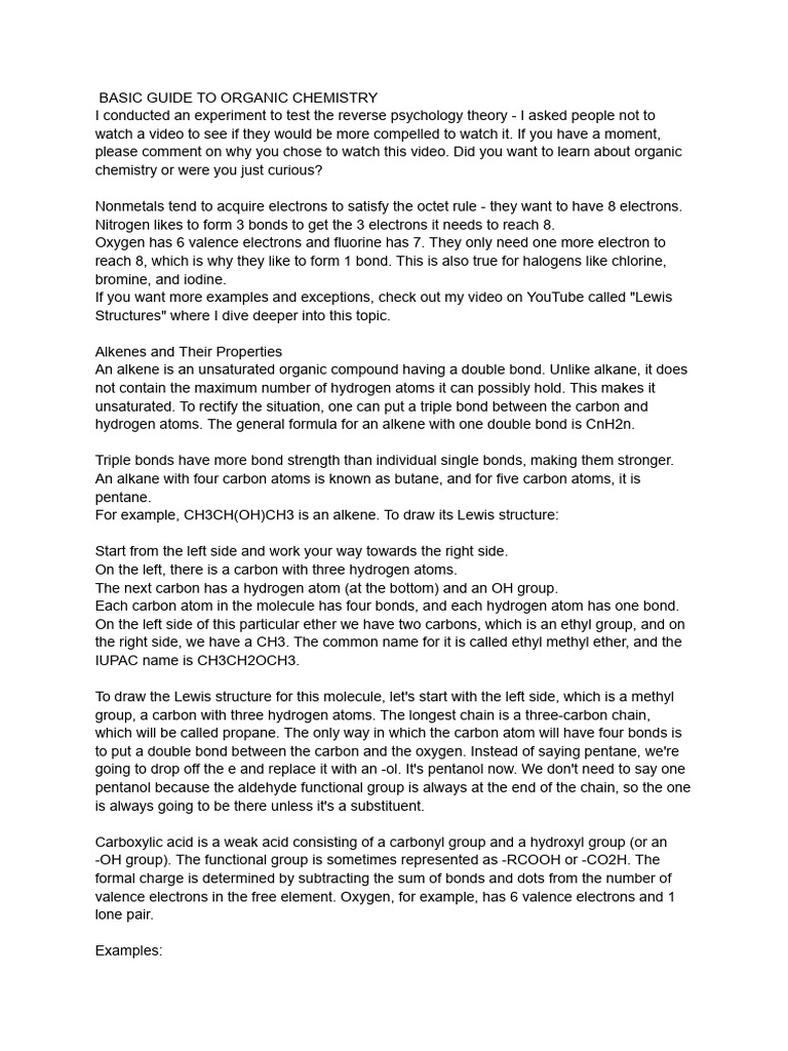
Effective Problem Solving in Organic Chemistry
Organic chemistry problems often require strategic thinking. Here are effective approaches:
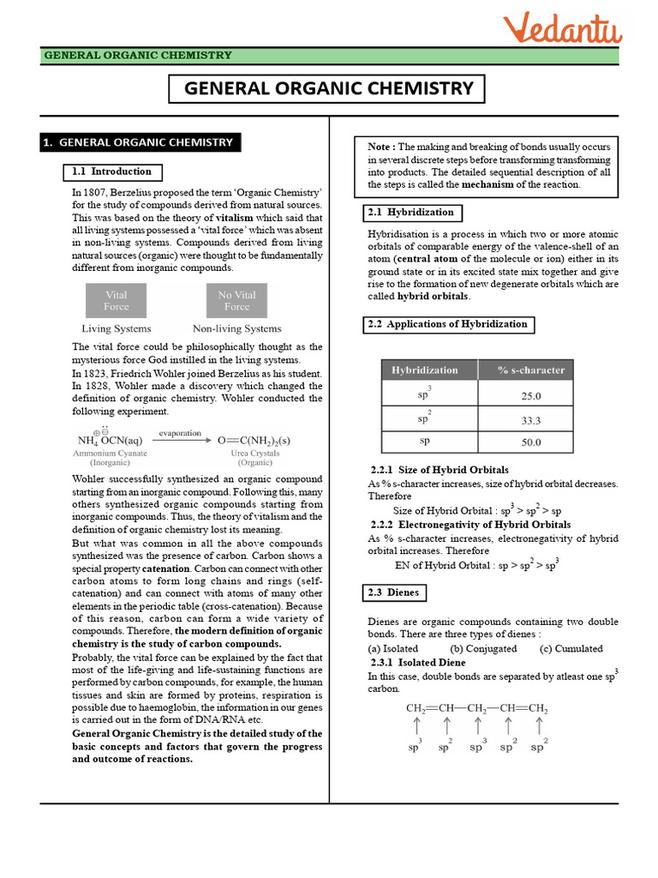
- Identify the type of compound and functional groups involved.
- Analyze reaction conditions and reagents carefully.
- Use fundamental principles such as electronegativity and resonance to predict outcomes.
- Break multi-step problems into manageable parts.
- Practice identifying common exam “tricks” or unexpected modifications to standard reactions.
Regular practice with exercises is key. Problem-solving skills improve by recognizing patterns across different reactions.
Recommended Textbooks for Beginners
Several textbooks are suitable for those new to organic chemistry:
- Organic Chemistry by David Klein – It is lauded for clear explanations tailored for beginners and includes practice problems to reinforce concepts.
- Organic Chemistry by Paula Bruice – Suitable after basic chemistry knowledge is acquired. It offers many exercises and a beginner-friendly style.
- Organic Chemistry by Jonathan Clayden – Though dense, it covers topics from basics to advanced material with clarity. Some find it demanding but highly informative.
These books provide structured content and exercises essential for mastering organic chemistry.
Supplementary Learning Resources
In addition to textbooks, various online tools can support learners:
- Khan Academy: Videos explain foundational concepts clearly and include organic chemistry topics.
- LibreTexts: A repository of high-quality free chemistry content covering organic topics extensively.
- Animated Tutorials: Visual learners benefit from animated explanations of key concepts. For example, The Animated Chemistry Textbook.
- Online Lecture Series: Beginner-focused lectures are available, such as those at linktr.ee/organicmelissa.
These resources augment textbook learning and address diverse learning styles.
Summary of Key Points
- Prior knowledge of basic general chemistry is essential for success in organic chemistry.
- Learning the language and fundamental principles of organic chemistry forms the foundation.
- Major organic compound classes provide a framework for organizing knowledge.
- Effective problem solving involves identification, analysis, and practice.
- Recommended beginner textbooks include works by Klein, Bruice, and Clayden.
- Supplementary resources such as Khan Academy and LibreTexts enhance understanding.
Organic Chemistry for Absolute Chemistry Beginners: A Friendly Guide to the World of Molecules
If you’re just starting out on your journey into organic chemistry, the best advice is this: get a grip on basic chemistry first. Jumping into organic chemistry without understanding general chemistry is like trying to bake a cake without knowing what flour or eggs do. Sure, you might get something edible, but the result will be questionable at best.
Organic chemistry leans heavily on foundational concepts like chemical bonds, acids and bases, chemical equilibrium, pH, and pKa. Without these basics, you’re setting up for confusion rather than success. Most universities agree; they require general chemistry courses before diving into organic chemistry. If you’ve skipped those, it’s time to hit the brakes and backtrack a bit.
Why Bother with Basic Chemistry First?
Imagine trying to understand organic chemistry reactions without knowing what a bond is. You’re basically being asked to solve a puzzle without having the picture on the box. The best way to gain confidence is to start with something familiar—high school-level inorganic chemistry works perfectly.
Once you get familiar with concepts like acids and bases or what pH means, tackling organic chemistry won’t feel like decoding alien language. You’ll also find terms like pKa—which measures acid strength—make much more sense. After this prep work, picking up an organic chemistry textbook becomes easier and less intimidating.
The Best Beginner Organic Chemistry Textbooks: Your Trusted Companions
Not all textbooks are created equal. If you’re new, steer clear of overly dense, dry tomes. Instead, opt for books designed with beginners in mind. Here are some top picks:
- “Organic Chemistry” by David Klein: This is a solid entry-level book that breaks down complex concepts into digestible chunks, making it a favorite among beginners.
- “Organic Chemistry” by Paula Bruice: Once you have some basic chemistry knowledge, Bruice’s book shines with clear explanations and plenty of exercises. The practice problems are crucial—not just to read, but to actively engage with the material.
- “Organic Chemistry” by Jonathan Clayden: If you’re feeling brave and want depth, Clayden is the go-to. It covers topics from the absolute basics to advanced material. Just know that it’s a bit of a challenging climb for true beginners, and you might feel like you’re signing up for an academic marathon.
Of course, everyone learns differently. Some prefer clear, simple explanations with lots of practice. Others thrive with detailed analysis. Choose what suits you.
Supplement Your Learning: Because Textbooks Alone Aren’t Enough
Reading is essential, but don’t stop there. Watching videos, using online tutorials, and engaging with interactive resources can dramatically improve your grasp.
- Khan Academy Videos: These cover the basics brilliantly and include organic chemistry topics, perfect for visual and auditory learners.
- LibreTexts Website: Think of this as a free online encyclopedia for chemistry—detailed explanations and exercises galore.
- The Animated Chemistry Textbook on YouTube: Sometimes, seeing a reaction or molecular structure in motion clicks ideas into place. These animations make tricky concepts easier and more fun.
- Online Lecture Series by Organic Melissa: A complete set of beginner-friendly lectures is available online, ideal for those who enjoy structured learning at their own pace.
Getting to Know Organic Chemistry: The Basic Principles and Language
Organic chemistry has what can feel like a secret language. Don’t worry—it’s not intimidating once you understand the basics. At its core, organic chemistry studies compounds containing carbon, arranged in different structures.
Knowing the fundamental principles lets you start spotting patterns. For example, the “major classes of compounds” like alkanes, alkenes, alkynes, alcohols, and carboxylic acids form the backbone of many organic chemistry topics. These compound classes each behave in their own predictable ways that, once understood, make studying organic reactions a lot less scary.
Tackling Organic Chemistry Problems: Your Strategy Guide
How do you approach a problem where you’re asked to predict the product of a reaction or analyze a mechanism? It helps to have a strategy:
- Start by identifying the functional groups involved.
- Recall the behavior of similar compounds or reaction types.
- Break the mechanism down into small steps—think “what moves here, and why?”
- Watch out for professor’s classic “trick questions” involving stereochemistry or unusual intermediates.
Exercises in recommended textbooks aren’t just busywork; they train you to recognize these patterns and spot the sneaky problems educators love to test.
Why Learn Organic Chemistry Anyway?
Wondering if organic chemistry is really necessary? Absolutely! It forms the foundation of many fields—from medicine and pharmacology to materials science and environmental chemistry. Knowing organic chemistry lets you understand how drugs work, how plastics are made, or how biomolecules function inside your body.
Plus, cracking the code of organic chemistry challenges your critical thinking and problem-solving skills. It’s like a brain workout, but with molecules instead of weights.
Wrapping It Up: Organic Chemistry Is Doable for Beginners with the Right Tools
Organic chemistry for absolute beginners is achievable and even enjoyable if approached right. Start with basic chemistry to build a strong foundation. Choose beginner-friendly textbooks like Klein’s or Bruice’s to guide your study. Use online videos and animation to cement your understanding. Learn the language and principles patiently. And develop effective problem-solving strategies to tackle tricky questions confidently.
So, instead of fearing organic chemistry, what if you embraced it as a fascinating puzzle waiting to be solved? With patience, practice, and the right resources, that intimidating subject becomes your new playground. Ready to start?
Q1: Do I need to know general chemistry before starting organic chemistry?
Yes, basic knowledge of general chemistry concepts like chemical bonds, acids and bases, pH, and equilibrium is important. Most organic chemistry courses assume you know these principles.
Q2: Which textbook is best for absolute beginners in organic chemistry?
“Organic Chemistry” by Paula Bruice is a good choice. It explains concepts clearly and offers many exercises that help build a solid foundation for beginners.
Q3: Are there online resources I can use alongside textbooks?
- Khan Academy offers basic organic chemistry videos.
- LibreTexts provides detailed written content.
- Animated tutorials and lecture series for beginners are available online, such as on YouTube.
Q4: What should I focus on to solve organic chemistry problems effectively?
Understand the fundamental concepts first. Learn to identify starting points in problems and watch for common tricky parts in questions that test your understanding.
Q5: What are the major classes of compounds I need to know in organic chemistry?
Begin by learning about the main compound groups like alkanes, alkenes, alkynes, alcohols, and acids. They form the basis for understanding reactions and mechanisms.


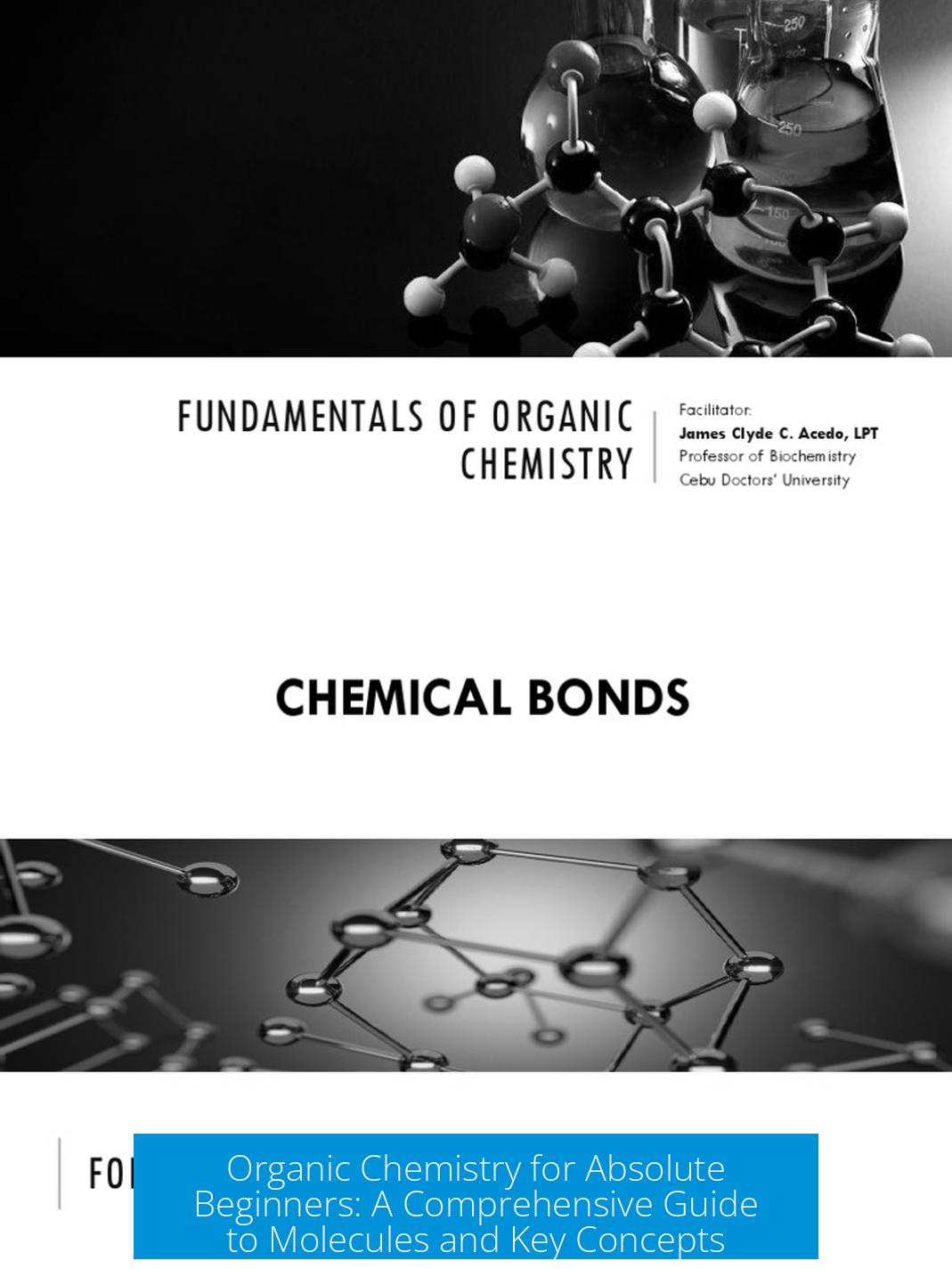


Leave a Comment